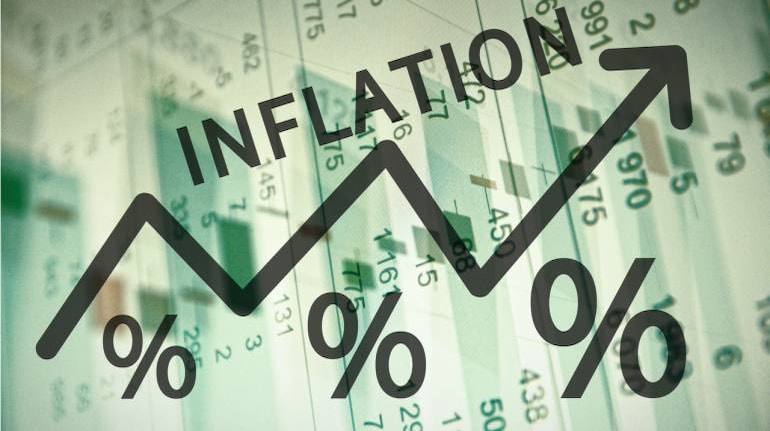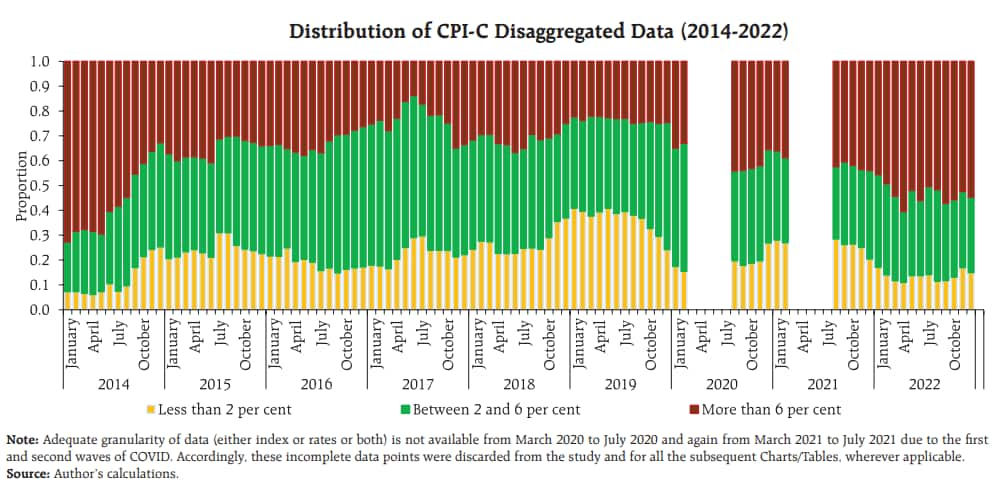



India's long-run level of inflation was probably around 4.3 percent prior to the Covid-19 pandemic, according to an analysis by the Reserve Bank of India (RBI) staff. During the pandemic, the increase has likely been temporary.
"The precise speed of the recovery and normalisation of business conditions coupled with evolving situations may dictate how much and how soon the inflation glides onto a lower trajectory," a paper by RK Sinha from the Monetary Policy Department said.
The paper, 'India's Steady State Equilibrium Inflation: A Revisit', published on May 22, only reflects the views of its author and not of the RBI. It examines retail inflation data from January 2014 to April 2023, the period corresponding to the flexible inflation targeting regime.
 Source: RBI
Source: RBI
The RBI adopted the flexible inflation targeting (FIT) framework in early 2014, with the formal acceptance of a medium-term target of 4 percent only taking place in the second half of 2016.
"In the presence of various shocks, it has always been a pertinent question as to what has been the trend of inflation in India in the post-FIT period, and where it would hover in the long run under a steady state equilibrium," Sinha said in his paper.
It was in this context that the RBI staff conducted a study on the same in 2017 and found that the 'long run steady equilibrium level' of inflation in India was 4.1 percent. The analysis by Sinha builds on this previous 2017 study.
The Indian economy has been buffeted by multiple shocks over the last three-and-a-half years, starting with the coronavirus pandemic, the consequent supply-chain shocks, and then the war in Europe. As a result, the Consumer Price Index (CPI) inflation has surged and remained above 4 percent for 43 months in a row. Last year, the RBI failed to meet its mandate after average CPI inflation strayed outside the 2-6 tolerance band for three consecutive quarters.
The findings by Sinha are in line with those of another RBI staff study, which sees India on the cusp of entering a "low inflation regime".
Discover the latest Business News, Sensex, and Nifty updates. Obtain Personal Finance insights, tax queries, and expert opinions on Moneycontrol or download the Moneycontrol App to stay updated!
Find the best of Al News in one place, specially curated for you every weekend.
Stay on top of the latest tech trends and biggest startup news.